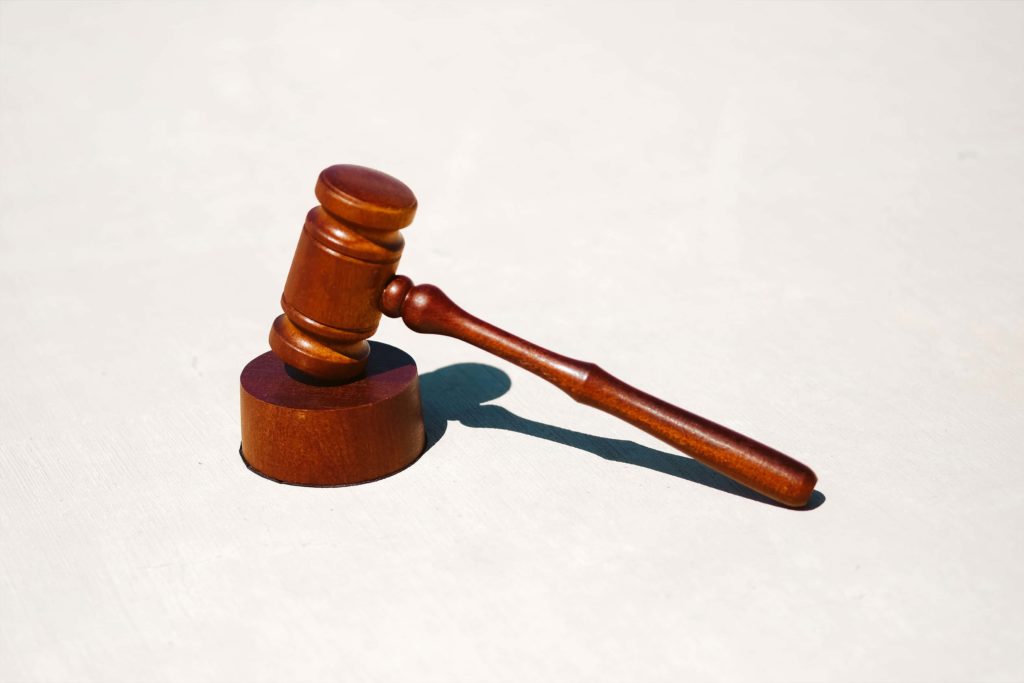How to Defend Against Medical Practice Frivolous Lawsuits

Has a plaintiff filed a frivolous claim against your medical practice? Although the chances of injured Americans filing a lawsuit are low (2% according to a Rand Institute for Civil Justice analysis), the possibility remains.
When someone files a lawsuit against you lacking any substantial basis, it can cause problems for your practice or career if not handled correctly. Learn more about why people will undergo frivolous litigation and how you can defend your medical practices and livelihood against these bizarre attempts.
What Is a Frivolous Lawsuit?
A frivolous lawsuit is an outlandish claim that a person files against another party. These plaintiffs know their case has little to no chance of success, even if it goes to court. As such, this type of lawsuit ends up being nothing more than a tool to annoy and harass the opposing party.
Often, frivolous lawsuits are personal injury cases. In the medical industry, the frivolous claims you might face generally involve alleged medical malpractices that have caused the plaintiff’s injuries. Commonly, they are asking for an exaggerated amount of compensation for damages. However, their claims could be far-fetched or untrue, thus wasting time, money, and effort for everyone involved.
True Cost of Medical Malpractice Meritless Claims
Part of what makes frivolous lawsuits or meritless claims in the medical field annoying is their economic costs. In the medical field, meritless cases need investigation and defending. These processes result in allocated loss adjustment expenses (ALAE).
Information from the Physicians Insurers Association of America (PIAA) states that over 24% of the approximately 10,000 meritless claims closed in 2005 had an indemnity payment or compensation for their losses.
However, the average ALAE payments for each claim were almost $21,000, totaling over $172 million in meritless claims. PIAA statistics also revealed an average of $17,400 in ALAE payments on cases without indemnity.
Meanwhile, the Ohio Department of Insurance reported that nearly 80% of malpractice cases in the state in 2005 had no indemnity paid. However, defending each of the cases cost over $24,000.
There is an ongoing database for closed medical malpractice claims under the PIAA Data Sharing Project. Between 1985 and 2005, the database gathered over 230,000 closed claims against physicians.
This study reported that the ALAE without an indemnity associated with these claims cost a total of $2,112,632,512. This amount exceeded the claims closed with an indemnity payment, totaling $1,836,577,204. The difference between the two is more than $275 million.
Why Are Frivolous Lawsuits Filed?
Harassing a defendant is the primary reason someone might file a frivolous lawsuit against another party. Sometimes, plaintiffs who go through these lengths suffer from mental illnesses. Perhaps they understand how legal processes work, and they use it as a tool to harass another person or a company. They know that suing someone, regardless of merit, requires time, energy, and resources to dismiss.
Outside of the medical industry, a person might file a frivolous lawsuit against a company for a false product liability claim. For instance, a plaintiff would claim that a product is defective, making the company spend time and effort to handle the situation and investigate the claim even if the complainant did it out of spite.
As a professional in the medical industry, a patient may sue you frivolously, alleging medical malpractice. Perhaps they intend for the lawsuit to tarnish your reputation, so they charge you with an outlandish, meritless claim to attach that lawsuit to your name.
Apart from wanting to disturb their opponent, a plaintiff could file a frivolous lawsuit in an attempt to stall an unrelated legal procedure. Courts spend time examining the merits of the claims presented to them, but they usually dismiss frivolous lawsuits immediately. Still, they spend time assessing the claims, which could be enough for the plaintiff to proceed with their motives.
Examples of Frivolous Lawsuit Disputes
General frivolous lawsuit examples range from medical malpractice claims to false advertising claims. Someone could sue you for a ridiculously large amount of money or make a claim that has no legal basis.
Anyone who takes legal action while knowing they have no chance of succeeding in court understands that they are filing a frivolous lawsuit. Likewise, the court will dismiss their claims as frivolous.
Here are some concrete frivolous lawsuit examples:
2009: Rosenberg v. Google Co., Utah District Court
Lauren Rosenburg sued Google for at least $100,000 in damages. She claimed that Google Maps gave her the wrong advice, telling her to walk along the freeway to reach her destination. She followed the directions precisely even though the directions were clearly wrong and dangerous. Eventually, a car hit her. Google appealed a motion to dismiss her claim as frivolous. The district court sided with Google and granted its motion.
1993: Overton v. Anheuser-Busch Co., Michigan Court of Appeals
Richard Overton sued the brewing company Anheuser-Busch for false advertising. He claimed that his 6-pack of Bud Light did not transport him to a tropical island with beautiful women, as seen in the company’s advertisements. Overton demanded $10,000 in emotional distress damages. However, the trial court dismissed the frivolous case, which the Michigan Court of Appeals upheld.
Consequences for Filing a Frivolous Lawsuit
Plaintiffs who file frivolous lawsuits and lawyers who represent them face some consequences. Frivolous lawsuit penalties include:
- Charges of Contempt of Court: Courts look down upon people who charge frivolous lawsuits. As such, they may charge the plaintiff with contempt of court, which is an offense associated with opposing or defying a court of law. Filing frivolous lawsuits count as wasting a court’s time. So, this conduct obstructs justice.
- Monetary Fines: Individuals who file frivolous lawsuits may face monetary fines. The amount will depend on the nature of the claim, where they filed the claim, and the resources that the court expended in handling the claim.
- Criminal Charges: Repeatedly filing a frivolous lawsuit may lead to criminal consequences for the plaintiff. You can sue a person who continually harasses you with frivolous lawsuits for harassment.
Meanwhile, lawyers who entertain plaintiffs filing frivolous lawsuits can face consequences, as well. These penalties include monetary fines, citations, and temporary or permanent state bar license suspension or revocation.
Some people believe that lawyers benefit from engaging in frivolous lawsuits. However, many lawyers work on a contingency basis, meaning they only get paid when they get a reasonable settlement or compensation amount for their clients.
Since courts immediately dismiss cases that they find frivolous, lawyers who file them will receive nothing. As such, the lawyer would have wasted their resources in pursuing a claim that had no chance of winning.

Hiring a Lawyer to Help Defend Frivolous Lawsuit Issues
Some frivolous lawsuits might be difficult to label as frivolous because of how the plaintiff presented them. However, experienced lawyers can determine whether or not a case is frivolous while helping you navigate the system in response to the claim.
As your legal representatives, lawyers can go before the court to explain why a plaintiff’s claim is frivolous if the court does not immediately dismiss the claim. Likewise, your lawyer can seek compensation for damages against any time you spent on the frivolous ordeal. Lawyers understand that the justice system has limited resources. So, your representative can ensure that the plaintiff who wasted them will face the consequences.
Conclusion
Frivolous lawsuits are legally baseless claims filed by plaintiffs to annoy you, waste your time and resources, or tarnish your good name through legal action. They are as expensive as they are annoying.
Defending yourself against these meritless claims requires legal action, even if they are absurd cases. Frivolous lawsuits have penalties, and those who file them should face the consequences.
Consider getting legal advice from our experts at Fenton Jurkowitz Law Group. Our lawyers are ready to identify and handle frivolous lawsuits so you can focus on your medical practice and your patients. Fill out our contact form to discuss your situation today.